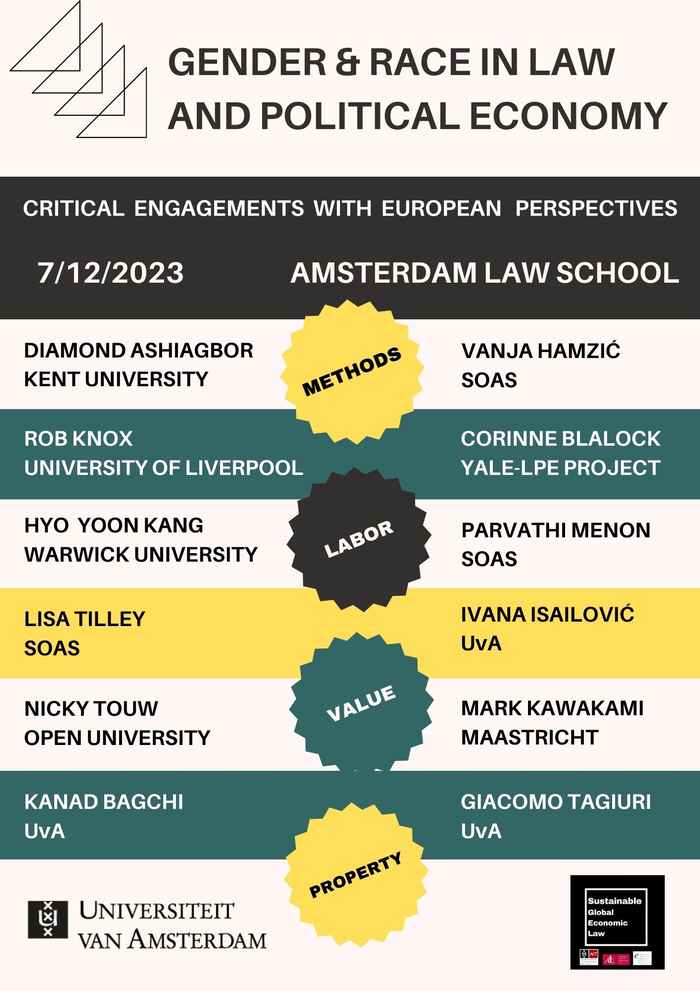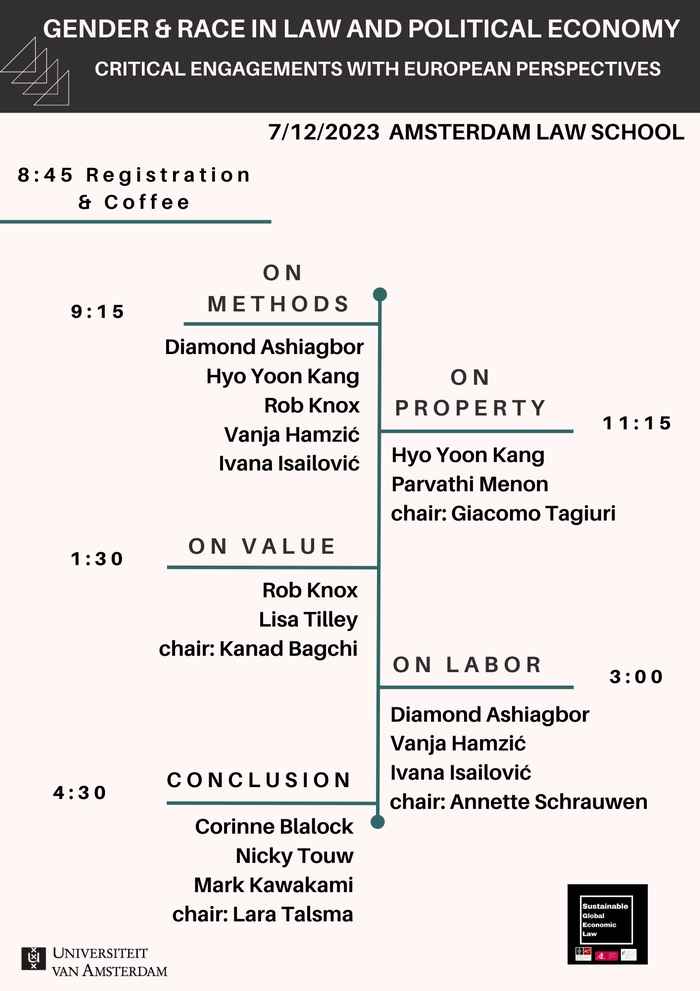Gender & Race in Law and Political Economy
- Date
- 7 December 2023
- Time
- 09:00 -18:00
- Location
- Roeterseilandcampus - building A
- Room
- A3.01
- Organised by
- Ivana Isailović

The notions of ‘race’ and ‘gender’ are very often erased and sidelined in mainstream legal thinking about the economy, particularly in continental Europe. But, for decades now, feminists, critical race and other critical scholars have demonstrated that any meaningful understanding of how the economy works needs to include meaningful engagements with notions of gender and race.
Materialist feminists showed that racialized understandings of gender should be front and center in the analyses of capitalism and neoliberalism. They have also a long tradition of connecting their analyses of the economy to the ongoing ecological crisis.
Some legal scholars have integrated these insights to show how gender relations and law interact in the structuring of the economy. For example, they showed how economic law produces gendered ‘workers’, and shapes ideas about sexuality and the family. They questioned the private/public divide, and the division between family, welfare state, and economic law. Despite its rich contributions, this kind of scholarship is still to a large extent marginalized in continental Europe.
Similarly, by challenging the myth of ‘race-blind’ markets, critical scholars showed that capitalist economies, and their modes of governance are embedded within, and keep reproducing racial hierarchies and colonial legacies.
These insights have been quite influential in international public law, and some of this scholarship is by now well-established and unavoidable. In other fields of study, however, such as European or transnational legal studies, concepts such as ‘racial capitalism’, ‘postcolonialism,’ or ‘decolonial thought’ are still very much a blindspot. That is the case even more so in the study of domestic (private & public) law. In other words, scholars and teachers in continental Europe, still largely operate under the assumption that contract, property, corporate law as well as family law are race-neutral.

The workshop is situated in the intellectual spaces opened up by feminist and other critical scholars’ methodological insights and seeks to contribute to further exploring what they mean in relation to law, and European perspectives and legacies.
Speakers will address these themes in connection to three key overlapping legal notions that structure the economy: value, labor and property.
Diamond Ashiagbor (Kent), Kanad Bagchi (UvA), Corinne Blalock (Yale-LPE Project) Vanja Hamzić (SOAS) Hyo Yoon Kang (Warwick) Mark Kawakami (Maastricht), Rob Knox (University of Liverpool), Parvathi Menon (SOAS), Annette Schrauwen (UvA), Giacomo Tagiuri (UvA), Lara Talsma (UvA), Lisa Tilley (SOAS), Nicky Touw (Open University) and Ivana Isailović (UvA).
